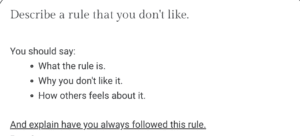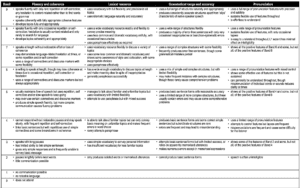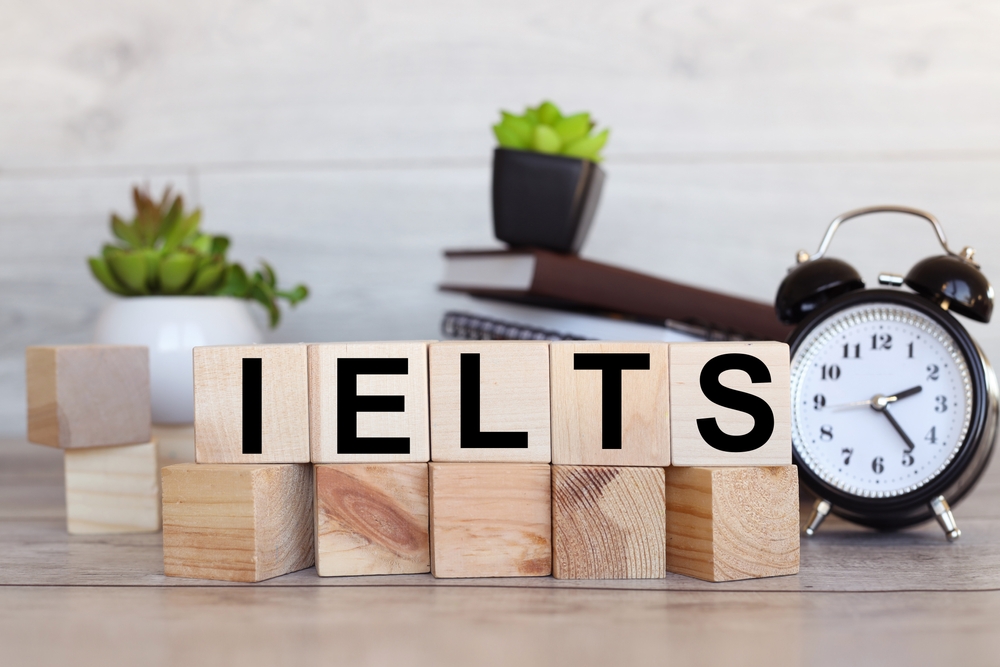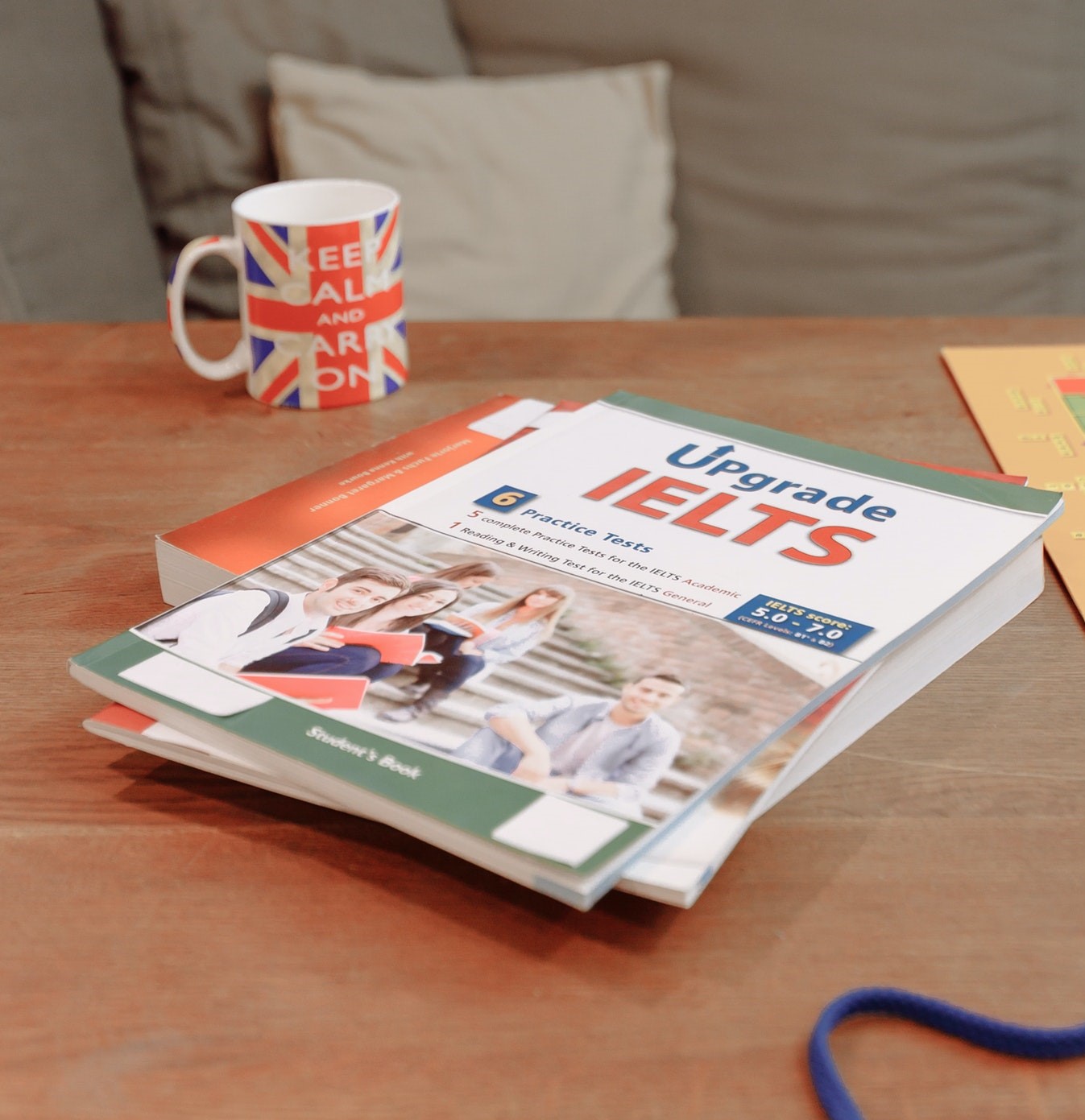The IELTS speaking test.
What is the IELTS speaking test?
 The Speaking test takes between 11 and 14 minutes and consists of an interview between the test taker and a trained and certified examiner. The exam is interactive and designed to be as close to a real-life situation as possible. In the IELTS speaking exam the content is the same for both IELTS Academic and IELTS General tests.
The Speaking test takes between 11 and 14 minutes and consists of an interview between the test taker and a trained and certified examiner. The exam is interactive and designed to be as close to a real-life situation as possible. In the IELTS speaking exam the content is the same for both IELTS Academic and IELTS General tests.
The IELTS speaking test is designed to assess a wide range of language skills, and the examiner will test how well you can
- Communicate by giving opinions and information on everyday topics and experiences, by answering a wide range of questions.
- To speak at length on a given topic using the appropriate language
- To organise your ideas coherently
- To express and justify your opinions
IELTS speaking test part 1
4 – 5 minutes
The examiner will introduce him or herself and ask you to introduce yourself and confirm your identity.
Part 1 will last approximately 4 to 5 minutes, which translates to approximately 12 questions on three different topics in roughly 5 minutes. It is critical that everything runs smoothly during this time, and you should not have to take too long to respond. Don’t be concerned if the examiner interrupts you at any point during the exam; he or she must control the time during the exam.
The examiner primarily tests you for two things in Part 1: 1 ) everyday vocabulary and 2) basic grammar.
Another very important thing is to speak naturally, rather than giving the examiner a long list of memorised answers, which not only does the examiner not enjoy hearing, but will also result in a lower score. Of course, you should prepare a large number of keywords for the various topics, but you should avoid memorising everything after that.
How to describe the area you live in answers
Believe me when I say that examiners can detect memorised sentences and phrases very quickly. Use your own ideas and express your own feelings, opinions, ideas, and emotions, rather than relying on an IELTS speaking book or video that claims to provide the perfect part 1 or part 2 answers. Part 1 should help you to relax and to talk naturally.
The current Part 1 topics are available here.
IELTS speaking part 2
3 – 4 minutes

“Now I’m going to give you a topic card and ask you to talk about it for one to two minutes.”
You’ll have one minute before you speak to think about what you’re going to say, and you can make some notes on this piece of paper if you want. You will not be interrupted by the examiner during this time, so it’s very important for you to keep talking. After you finish speaking the examiner may ask you one or two quick questions on what you said.
Describing people in part 2 topics – Example part 2 answers with audio
Part 2 topics are usually from one of the following general categories; People, Things, Places, Everyday activities, Experiences and Future plans
You should never consider your Part 2 answer to be like a formal “speech”. Instead, it should be like an extended answer that someone would speak in a natural way during a conversation.You should also not sound like you are reciting the topic, or the examiner will lower your score.
The current Part 2 topics are here.
IELTS speaking part 3
4 – 5 minutes
Also see IELTS speaking part 3 success
In the IELTS exam part 3 the examiner will ask additional questions related to the topics covered in part 2.
This section of the test is intended to allow you to discuss more abstract issues and ideas. It is a two-way conversation with the examiner that will last about 4-5 minutes
The examiner will sometimes try to push you to your English limits in part 3. The point at which you are unable to respond informs the examiner about the upper limit of your speaking ability. Don’t consider yourself to have “failed the test” if you can’t answer a question at all or poorly. By doing this the examiner can decide for example if you are a 6.5 or a 7.
IELTS vocabulary for movies with answers – Some example part 3 answers with audio.
The majority of the questions in Part 3 of the speaking exam will be about people or life in your country in general. Sometimes a question about you is asked, especially at the start of one of the two Part 3 topics. This is in contrast to Part 1, where the majority of the questions are about you, and only sometimes with a question or two at the end of the topic about people or life in general in your country.
As part 3 is intended to be a simulated discussion, you should really try to communicate as well as discuss the topic, unlike in part 1 where you just simply answer the questions. Your answers should be full of detail and even introduce new points that are not directly connected to your main answer.
How are you scored in the IELTS speaking exam?
 You will be marked on the four criteria; fluency and coherence, lexical resource, grammatical range and accuracy, and pronunciation. Scores will be in whole and half bands.
You will be marked on the four criteria; fluency and coherence, lexical resource, grammatical range and accuracy, and pronunciation. Scores will be in whole and half bands.

Download Speaking band descriptor
How to prepare for the IELTS speaking test.
It’s very important for you to understand how the IELTS speaking exam works, and of course to know and understand what the IELTS examiner is looking for. You also need to be realistic about the band score you want to aim for, and realise that to go from a 5.5 to a 6.5 will take a lot of work and time. In general, to improve your score like this is going to take a good year of hard work, and there is really no easy way.
Have a study plan
 It’s important to have some kind of study plan, and stick to it. Taking one-to-one classes with a professional IELTS tutor is a great start, and you should try a mock/practice test first to see where your score is and get some feedback on what you need to work on.
It’s important to have some kind of study plan, and stick to it. Taking one-to-one classes with a professional IELTS tutor is a great start, and you should try a mock/practice test first to see where your score is and get some feedback on what you need to work on.
You will also need to study and practice at home in order to improve. Keep getting familiar with all the different IELTS speaking topics and questions. When you are practising, it’s a great idea to record yourself using your mobile phone, and then play back the recording, listening for any mistakes or bad habits that you can work on improving.
Find a friend or speaking partner to play the role of the IELTS examiner asking you the questions in all 3 parts of the speaking exam.
Work on your grammar for IELTS speaking
Grammar, especially basic grammar, is very important, starting in part 1 of the speaking exam. In part 1 the examiner is testing your basic use of tenses, and the frequency of basic grammar mistakes are what the examiner will notice early on. Make sure you practice using the basic tenses in preparing for your exam, and cut down on making errors.
Pay attention to the verb tense in the questions and use it in your answer. Practice speaking quickly in the basic past tense and then switch to the future tense. Spend a few minutes every morning and evening, before you brush your teeth practising into the mirror. Talk about what you did yesterday, and then change to what you will do tomorrow.
To score a 6 or 6.5, you can make a number of grammar mistakes, but it’s important to show the examiner that you have a good basic understanding of grammar, and be able to at least make a good attempt at using more complex grammatical structures. With more complex grammar the errors should not be so bad that the examiner misunderstands your meaning.
The use of complex sentences is a very important part of your grammar score and again make sure this is something that you study and work on. It’s impossible to get a 6 in grammar if you don’t make some good attempts at using complex sentences.
Examiners will also look at your grammatical range, and whether you can use more difficult grammar structures such as, the past perfect, conditional tenses and the passive voice.
A band 8 candidate should be able to use all of these with almost no effort or errors. However to score a band 6 can use just some of these and still make some errors. The key is to be correct at least some of the time, and to show the examiner that you have a basic understanding of more advanced grammar. Don’t be afraid to make some mistakes, and try to use some more advanced grammar to at least show the examiner that you are aware of it.
IELTS speaking test vocabulary
The IELTS examiner will be looking at your range of vocabulary, and how you can use words while talking about different topics. To score a 7 or above the use of idiomatic expressions becomes more important, and even if you are a band 5 or 6, you should at least be studying and trying to learn some useful phrasal verbs.
You should also be increasing your knowledge of adjectives, especially to describe feelings (disappointed, embarrassed, fascinated, annoyed, inspired, thrilled, exhilarated, overwhelmed)
and peoples personal qualities(Talented, ambitious, aggressive, driven, warm-hearted, open-minded, even-tempered, easy-going, analytical, introverted, extroverted, outgoing, empathetic, creative), as these are things that come into many different IELTS speaking topics.
Adverbs are also important in the speaking exam, and again this is something you should work on. Some examples of adverbs are ;hopefully, strangely, luckily, unfortunately, usually, rarely, frankly, seriously, actually, certainly, definitely, surely, probably, possibly, scarcely, hardly, barely, frequently, normally, absolutely, entirely, perfectly, virtually, merely, simply and so many more.
Fluency and coherence in IELTS speaking
Fluency is mainly concerned with continuity, speed and smoothness.
Continuity refers to your ability to keep talking without too many unnatural pauses. A natural pause is where we quickly think of an idea, the most suitable word, or to answer a difficult question, and this won’t affect your score.
A long or unnatural pause is usually where the speaker is stopping to search for the vocabulary or translating what they are trying to say before speaking, which will cause your fluency score to go down.
When preparing for your test work on grammar and learn to develop the habit of using correct grammar. However, in the exam itself, you should always concentrate on speed and continuity, rather than worrying too much about grammar.
I have noticed that some students correct themselves too much during a test, which causes them to lose continuity too often. So, again in the actual test, unless you make a really terrible mistake it’s best to keep going, and keep your continuity.
Speed in the speaking exam
 If your speed is unnaturally slow in the IELTS speaking exam, then you will lose points for fluency. If you have good and clear pronunciation, then you should push yourself to speak a little faster during the test. However if you have some problems with pronunciation, be careful not to speak so fast as the examiner will have difficulty in understanding or following you. As I mentioned before, recording yourself as you practise and playing it back is always a good idea.
If your speed is unnaturally slow in the IELTS speaking exam, then you will lose points for fluency. If you have good and clear pronunciation, then you should push yourself to speak a little faster during the test. However if you have some problems with pronunciation, be careful not to speak so fast as the examiner will have difficulty in understanding or following you. As I mentioned before, recording yourself as you practise and playing it back is always a good idea.
Coherence in speaking
In order to extend your answers you will need to have a number of ideas, and then these ideas need to be linked or joined together in order to be coherent and easily understood. To score a 6 or above in the speaking exam you must be able to show some use and ability with linking words or phrases.
Coherence skills become very important in part 2, where you must describe something in more detail, and you need to show a connection between your sentences. In part 3 coherence becomes even more important, as most part 3 questions require answers that have several ideas linked together.
Linking words for IELTS part 3 speaking success
How to score a 7+ in the IELTS speaking test.
 Many IELTS students find themselves stuck at band 6, even after several attempts, which understandably leads to frustration and a lack of direction. This can be due to poor advice from other teachers, unprofessional feedback, or a misunderstanding of what the examiner is looking for in the IELTS speaking exam.
Many IELTS students find themselves stuck at band 6, even after several attempts, which understandably leads to frustration and a lack of direction. This can be due to poor advice from other teachers, unprofessional feedback, or a misunderstanding of what the examiner is looking for in the IELTS speaking exam.
How to get a band 7 in IELTS speaking
How your overall band score is calculated according to the British Council if you are looking on how to get a band 7 in IELTS speaking.
| Band 7 | Good user | You have an operational command of the language, though with occasional inaccuracies, inappropriate usage and misunderstandings in some situations. Generally you handle complex language well and understand detailed reasoning. |
The IELTS Speaking test is designed to assess a wide range of skills.
The IELTS examiner will want to see how well you can
- communicate opinions and information on everyday topics and common experiences; to do this you will need to answer a range of questions
- speak at length on a given topic using appropriate language and vocabulary
- organise your ideas coherently
- express and justify your personal opinions
- analyse, discuss and speculate about a range of issues
Make sure that you are relaxed and speak fluently during your speaking test. You will need to speak naturally at all times.



































